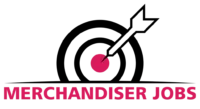Advice on Writing a CV: Expert Tips and Best Practices
Crafting a compelling CV (Curriculum Vitae) is crucial for job seekers aiming to make a strong impression on potential employers. This article provides comprehensive advice on writing a CV.
Whether you’re a recent graduate or an experienced professional, these tips will help you create a CV that stands out.
Advice on Writing a CV: Understanding the Basics
What is a CV?
A CV, short for Curriculum Vitae, is a detailed document highlighting your professional and academic history. It includes information such as work experience, education, skills, and achievements. Unlike a resume, which is typically a brief overview, a CV provides a comprehensive look at your career.
The Importance of a Well-Written CV
A well-written CV is essential because it serves as your first impression to potential employers. A clear, concise, and tailored CV can significantly increase your chances of landing an interview.
Advice on writing a CV: Key Components Contact Information
Ensure that your contact information is up-to-date and professional. Include your full name, phone number, email address, and LinkedIn profile.
Personal Statement or Objective
Your personal statement or career objective should be a brief summary of your career goals and what you aim to achieve in the role you’re applying for. Tailor this section to each job application to make it relevant and compelling.
Work Experience
List your work experience in reverse chronological order, starting with your most recent job. Include your job title, company name, dates of employment, and key responsibilities and achievements.
Education
Detail your educational background, including degrees, certifications, and relevant coursework. Start with the most recent and work backward.
Skills
Highlight your key skills that are relevant to the job. This can include technical skills, languages, and soft skills such as communication and teamwork.
Achievements and Awards
Include any significant achievements or awards that showcase your skills and dedication. This can be academic awards, work-related accomplishments, or recognitions from professional organizations.
Tips for Writing a Standout CV
Tailor Your CV to the Job
Customize your CV for each job application. Use keywords from the job description and highlight the experiences and skills that are most relevant to the position.
Use a Professional Format
Choose a professional and easy-to-read format. Use clear headings, bullet points, and a consistent font. Avoid using overly creative designs that may distract from the content.
Keep It Concise
While a CV is more detailed than a resume, it should still be concise and to the point. Aim for a length of two pages, and avoid including irrelevant information.
Highlight Achievements with Metrics
Whenever possible, quantify your achievements with metrics. For example, “Increased sales by 20%” or “Managed a team of 15 employees.”
Proofread and Edit
Ensure your CV is free from spelling and grammatical errors. Proofread multiple times and consider asking a friend or professional to review it.
Advanced CV Writing Tips
Incorporate Action Verbs
Start each bullet point with a strong action verb, such as “developed,” “managed,” or “implemented.” This makes your achievements sound more dynamic and impactful.
Use Keywords from the Job Description
Many companies use Applicant Tracking Systems (ATS) to screen CVs. Use relevant keywords from the job description to increase the chances of your CV passing through the ATS.
Include a Professional Summary
A professional summary at the beginning of your CV can provide a snapshot of your career highlights. This is particularly useful for experienced professionals.
Emphasize Continuous Learning
Showcase any ongoing education or training that is relevant to your career. This demonstrates your commitment to professional development.
Make Use of Online Tools
Leverage online tools and templates to create a polished CV. Websites like Canva or NovoResume offer customizable CV templates that can help you design a professional-looking document.
Common Mistakes to Avoid
Using a Generic CV
Avoid using the same CV for every job application. Tailor each CV to the specific job to make it more relevant and compelling.
Including Irrelevant Information
Stick to information that is relevant to the job you’re applying for. Avoid including personal details such as age, marital status, or hobbies unless they are directly related to the job.
Overloading with Jargon
While it’s important to use industry-specific terms, avoid overloading your CV with jargon. Ensure that your CV is understandable to a broad audience, including HR professionals who may not be familiar with technical terms.
Neglecting Soft Skills
In addition to technical skills, highlight your soft skills such as communication, leadership, and problem-solving. These are highly valued by employers and can set you apart from other candidates.
Ignoring Formatting
A poorly formatted CV can be difficult to read and may be overlooked by recruiters. Ensure your CV is well-organized, with clear headings and bullet points.
Frequently Asked Questions about our Advice on Writing a CV
How long should a CV be?
A CV should typically be two pages long. However, for professionals with extensive experience, it may extend to three pages. The key is to keep it concise and relevant
Should I include a photo on my CV?
Including a photo on your CV is not necessary and is not common practice in many countries. It can also lead to unconscious bias. Focus on your skills and experiences instead.
Can I use the same CV for different job applications?
It’s important to tailor your CV for each job application. Customize your CV to highlight the skills and experiences that are most relevant to the specific job.
How do I handle employment gaps on my CV?
Be honest about employment gaps and briefly explain them in your CV or cover letter. Focus on how you stayed productive during the gap, such as through volunteering, freelancing, or further education.
What format should I use for my CV?
Use a clean and professional format. Stick to standard fonts like Arial or Times New Roman and use bullet points for easy readability. Ensure your headings are clear and consistent.
By following our advice on writing a CV, you can create a standout document that captures the attention of employers and increases your chances of landing your desired job. Remember to keep your CV updated and tailored to each job application to ensure it remains relevant and impactful.





